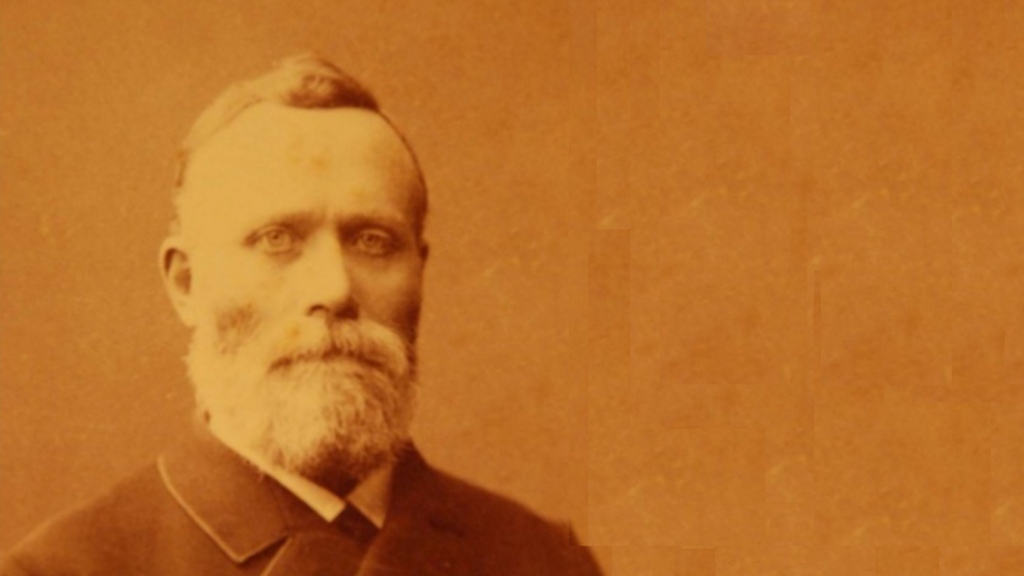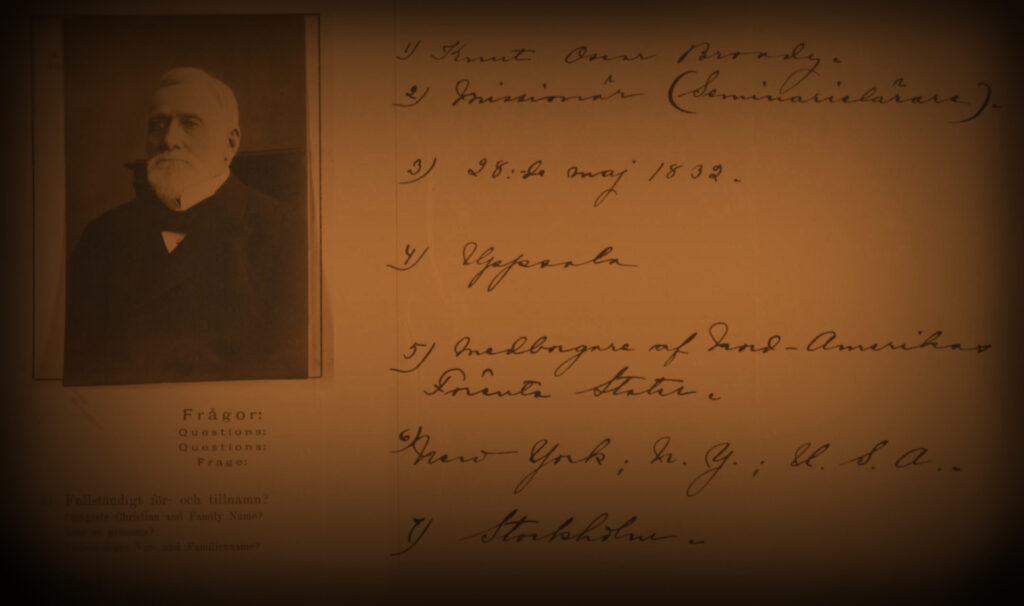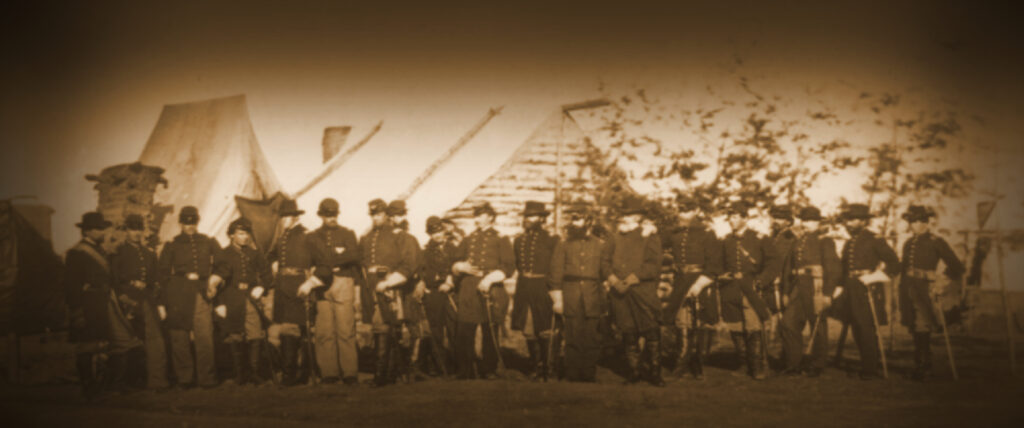
”The Colonel” (”Översten”) is the novel about Knut Oscar Broady (1832-1922), a Swedish immigrant whose fate placed him at several critical junctures, events that changed Swedish as well as American history. ”The Colonel” is fiction. But Knut Oscar existed, and the book tries to stay as close as possible to historical facts.

When I was researching my previous novel, “Swede Hollow”, (2016) I crossed the paths of a great number of fascinating Swedish emigrants; so much of that history remains to be written. But the story that burned with the brightest flame was the one about the poor boy Knut Oscar, born 1832 in the slums of Uppsala. When you study his biography it almost sounds too fantastic to be true. As a child, he ended up in the middle of the 1838 uprising in Stockholm, which almost ended in a lynching of his Jewish neighbors. As a young artilleryman he found himself at the center of the new riots in Stockholm in 1848 when people charged through the streets shouting “republic now!” and thirteen protesters were killed by soldiers. The same year his mother abandoned her abusive husband and left for America, which was something unheard of in those days for a poor working class woman to do.

A few years later, Knut Oscar and his young and pregnant wife Charlotte decided to follow her to New York, in the first wave of Swedish emigrants to the United States. The passage on the almost derelict Norwegian ship Laurvig has gone down in history as one of the worst emigrant voyages from Scandinavia. It ended in tragedy with one-third of the passengers buried at sea.

And soon Knut Oscar finds himself in the slums of New York with his newborn daughter – in the very same parts of the city described by Martin Scorsese in his film “Gangs of New York” – where he becomes “Knut Oscar Broady”. When the American Civil War erupts he is already part of the religious abolitionist movement, after having seen friends being abducted in the middle of the city by bounty hunters. His entire class of the Baptist university where he studies join up and forms their regiment of the Army of the Potomac. Knut Oscar rises through the ranks and is present at all the worst battlefields: Fredericksburg, Gettysburg, the Wilderness, the siege of Petersburg… and ends up as Colonel, a title he is known under for the rest of his life.

When he crosses the Atlantic again, back to his native Sweden, he becomes a central figure in a country where religious freedom is on the brink of a breakthrough, as the first headmaster of the free Baptist theological seminary and very visible in the debates of the time. But how can all this take place in the life of a single individual? And how could any writer possibly stumble upon such a story without trying to follow it to its end?

The story of Knut Oscar’s life is filled with drama. You can follow his path, through archives and documents, and he turns up in the pages of a lot of Civil War literature. His great-grandson Donald Broady in Stockholm has got his Civil War Sabre on the wall. But how to capture all of this in a novel? What was it like to be Knut Oscar? He had a knack for ending up ”in the middle of things”, at the ”center of history”. But that is something you never can tell when it happens. “History” is written afterward. Writing a novel about him was a serious attempt to try to get close to another, very different life. But how close can you get? What can you capture with fiction, that you can’t reach with any other instrument?

From time to time the real Knut Oscar wrote a diary – but not a single word about his experiences in the war. There you find a great silence. We know where he was and what he had to do – but not what it was to be him. You are always a prisoner of your own head and body, and we understand the world through what it does to you. But as long as human society has existed there has been storytelling and fiction, the attempt to imagine that you can be someone else and see the world through their eyes. I think that is an essential practice if you want to be a member of society – to understand that the experiences of others, perhaps very different from yours, are as real and as important as your own. In the last few decades, there has been a new wave of important historic fiction. At the core of that kind of novel, you find the question: what in our lives is determined by “circumstance” – and what is “you”? Can you separate these things at all? And how much can we understand of lives lived at a great distance from our own? No subjects are too great or too difficult to write about – it is all about how you write. Ethic and esthetic clumsiness and lack of respect often turn out to be one and the same.

I have now spent five years in the world of Knut Oscar. I think I have learned a lot in there, also about the world we live in today. I hope that it is possible to step into the world of the novel and have a look around.
Welcome.

